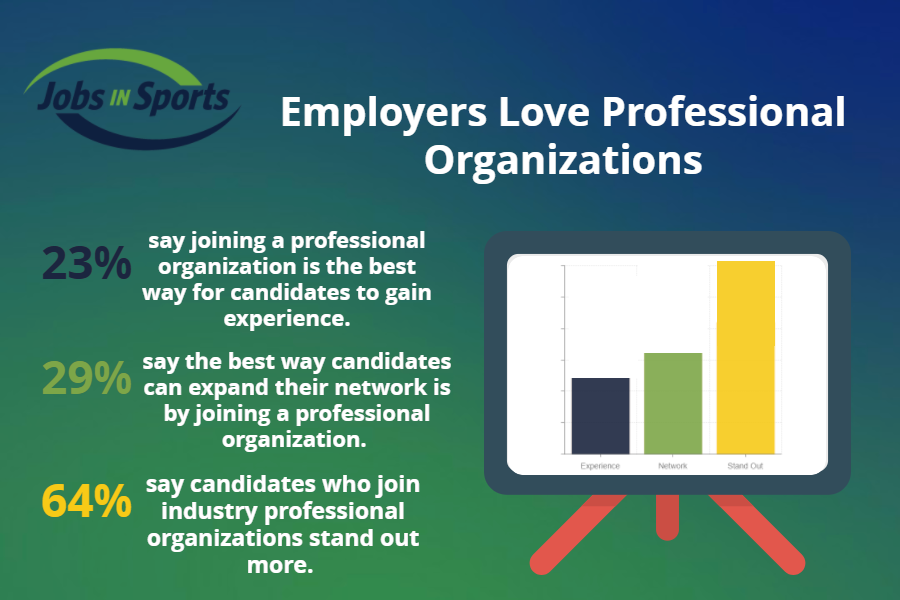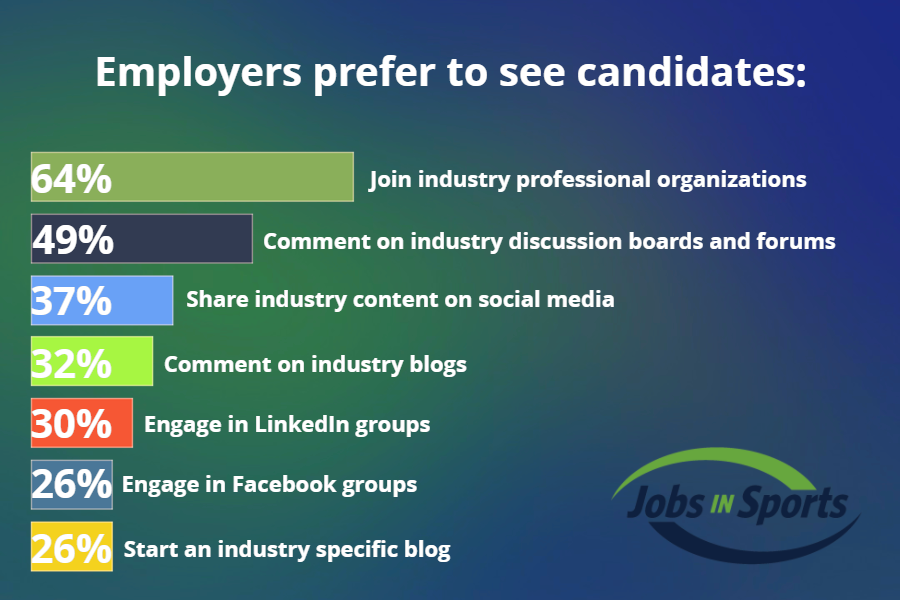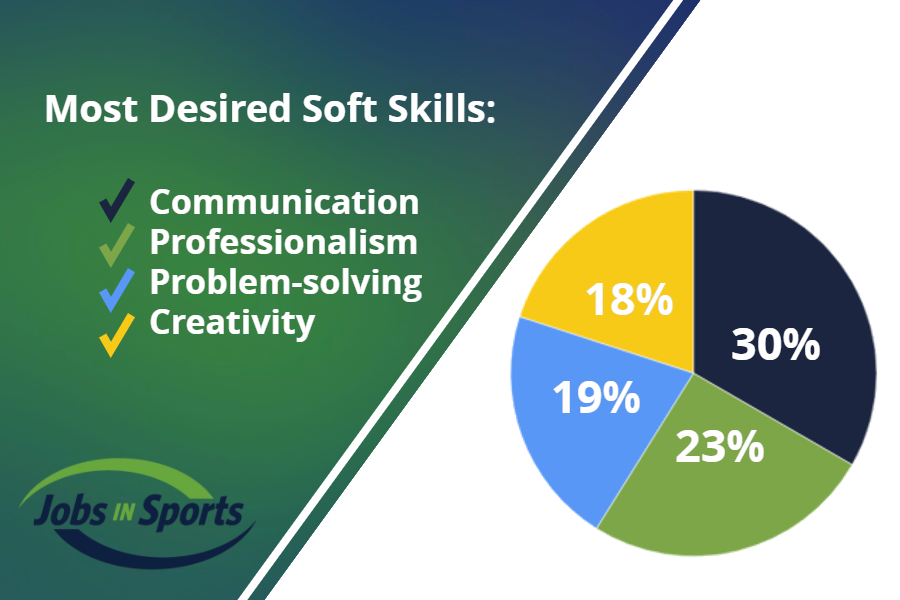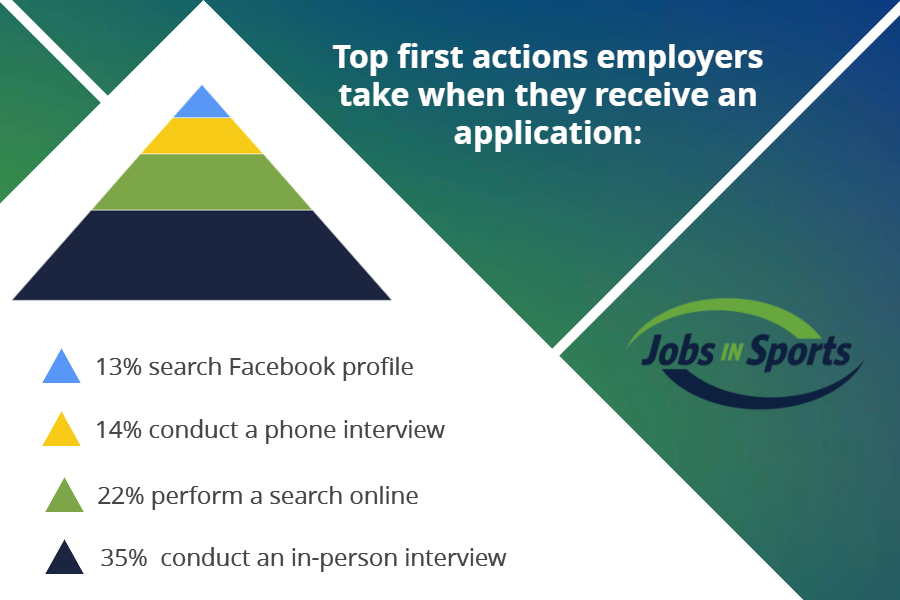Searching for a job is hardly an easy feat, and it is especially difficult when you’re looking for a career in a niche industry. For example, those looking for work in sports face numerous challenges in a highly competitive market.
So, we conducted a survey to find what employers look for in niche job markets. Overall, our analysis pointed to three essentials that job seekers like you need to know about.
Let’s take a look at these three essentials and other important findings from the survey:
The Power of Networking
Networking has been a buzzword for a long time now, and it’s especially important in niche industries. When your industry is small enough, you can expand your network quickly and build your reputation effectively.
So why is networking important?
For starters, referrals matter — 60 percent of employers say they give referred candidates more attention and consideration than other candidates. In other words, when you prove your value and someone vouches for you as a professional, employers tend to favor you over other candidates.
What’s more, 15 percent of employers say the best way candidates can express enthusiasm for the industry is by attending company or industry events.
To put it simply, networking in a niche industry has many benefits. Not only does it give you more opportunities to earn referrals, but also it demonstrates how passionate you are about your industry and can even help you expand your network and stand out from the competition.
Employers say the top three ways that candidates can expand their network are as follows:
- Join professional organizations (29 percent)
- Attend seminars and lectures (20 percent)
- Attend industry events (19 percent)

Additionally, 64 percent of employers say that joining these organizations helps candidates stand out.
The takeaway is simple enough — get involved. Join organizations that are specific to your industry and your career path.
Let’s say you want to work in sports as a marketing professional Search for organizations online and use resources like LinkedIn Groups, Reddit, and Quora to ask for input from people who already work in sports.
One of the most reputable sports marketing groups is the Sports Marketing Association. If you become a member, you receive a quarterly publication called Sports Marketing Quarterly as well as discounts on events and conferences.
For example, their 2017 annual conference is in Boston, from November 1-3. This is an ideal chance for you to learn about what it’s like to work in sports marketing and to get to know more industry colleagues.
Other professional organizations like the North American Society for Sport Management (NASSM) provide similar benefits, along with access to exclusive web content. Stay informed about your industry’s latest news and trends and use it to engage in conversations at events and conferences. You can even network online and share content with your connections.
Aside from joining professional organizations, employers say that candidates can also stand out in their niche market if they:

Use your online presence to communicate your value and provide your insights on industry-specific topics. Networking helps you develop one of the most attractive soft skills — communication.
Communication is Key
Thirty percent of employers rank communication as the top soft skill they want in candidates. If employers see common communication mistakes, they are turned off.
The top two communication mistakes candidates make are:
1. Making typos and grammatical errors (39 percent)
2. Using negative body language during an interview (22 percent)
In other words, hone in on your communication skills and prove it as a strength. This is another great opportunity to stand out in your niche market.

Use resources likeCoursera, Udemy, and other online learning platforms to build your skills and learn about what it takes to effectively communicate. You can become a better writer, learn about persuasive communication tactics, and even brush up on public speaking.
Don’t forget the impact body language has on your professional and personal life. Find a career coach to practice interviewing and focus on positive body language, like making eye contact and keeping a good posture. The more you work on body language, the better you will be in professional settings like interviews, meetings, and even networking events.
Online Reputation and Social Proof
When you’re applying for a job in a niche industry, you may be left waiting as employers review your qualifications. However, you have more control of your situation than you may think — and that involves your online reputation.
In fact, 22 percent of employers say the first action they take when they get an application is to research the candidate’s name on a search engine. Your online reputation should make it clear that you’re right for the job and the culture.

If employers don’t see relevant experience in your application, show them how your current skills are transferable to the prospective role. Three out of four employers say they won’t consider you unless you can make this clear.
Even for internship applications, transferable skills are a must. In fact, 13 percent say it’s the first thing they look for in the application.
Be proactive by managing your personal search engine optimization (SEO). You can control what your potential employers see when they search for you on Google by creating good content. In other words, you want employers to find your blog post on your industry’s latest trends report, not your college party photos.
Start by buying your own domain that has your professional name in it. If you want to work in sports, show that by sharing your resume and highlighting your career aspirations on your professional website. You can also show what professional organizations you belong to.
As you build your online presence, create proof that you have the skills necessary to succeed in prospective roles within your niche industry. If you’re trying to find work in sports marketing, create a blog that showcases crucial skills.
For example, create fake marketing campaigns for existing brands to demonstrate how you can creatively boost brand awareness and craft targeted brand messaging.
Creativity gives you a big advantage in niche industries as well. As far as soft skills go, employers ranked it as the fourth most wanted.
Additionally, you can show off your creative chops by designing a unique resume that matches your personality. Nearly six out of 10 employers agree they prefer candidates who submit creative resumes.
Finding work in niche industries is difficult. But with a proactive strategy, you can stand out and impress potential sports employers.






